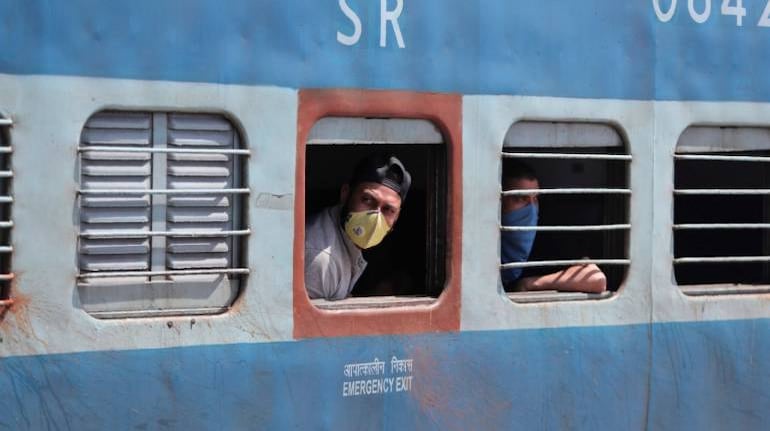



The Indian Railways has operated 1,414 'Shramik Special' trains so far since May 1 and most of them have originated from Gujarat and Maharashtra, the national transporter has said. While 162 trains are in transit, 1,252 trains have reached their destinations. Around 116 trains are currently in the pipeline, it said.
Since May 1, the railways has ferried around 18.5 lakh migrants home.
According to available data, 496 trains have originated from Gujarat and 17 more are in the pipeline, while 266 trains have already started from Maharashtra, with 37 more in the pipeline.
Among the other originating states, 188 trains have started from Punjab, 89 from Karnataka, 61 from Tamil Nadu, 58 from Telangana, 54 from Rajasthan, 41 from Haryana and 38 from Uttar Pradesh.
Out of the trains, which have terminated so far, the maximum has been in Uttar Pradesh (641) while 73 more are in transit, followed by Bihar (310) with 53 more on its way to the state.
The operation of these trains has, however, led to a political mudslinging with first the opposition accusing the Centre of charging fare from migrants and then the Centre accusing some states with the non-BJP government not allowing providing permission for migrant trains to run.
Railway Minister Piyush Goyal, in a series of tweets, on Monday said he had spoken to the Odisha, Bihar and Uttar Pradesh governments and they have all assured him that they will permit more trains to their respective states.
In the case of Odisha, migrant special trains would have to be suspended due to cyclone 'Amphan', he said, adding that after it passes, trains will be allowed.
Goyal also tweeted that he had a discussion with Bihar Chief Minister Nitish Kumar about the migrant special trains and he was given the assurance that the state will give permission to run 50 'Shramik Special' trains per day.
"Chief Minister of Uttar Pradesh @mYogiAdityanath. There was a discussion with Nitish Kumar ji about migrant labourers and I am glad that he approved to double the number of Shramik Special trains for the state," he said.
The Centre has also said it has the capacity to run 300 'Shramik Special' trains per day with Goyal appealing to states like West Bengal, Rajasthan, Chhattisgarh and Jharkhand to approve more trains.
"We are fully ready for large scale operation of Shramik spl (special) trains. So far 1414 trains (have operated) and more than 18.5 lakh people (have been ferried)," a railway spokesperson said. A 'Shramik Special' train carries around 1,700 passengers, instead of the earlier 1,200, to ferry as many workers home as possible.
Initially, these trains had no scheduled stoppages during the journey, but the railways now allows up to three stoppages in the destination states.
While the transporter is yet to announce the cost incurred on these special services, officials indicated that the national transporter is spending around Rs 80 lakh per service.
Follow our full coverage of the coronavirus pandemic here.
Discover the latest Business News, Sensex, and Nifty updates. Obtain Personal Finance insights, tax queries, and expert opinions on Moneycontrol or download the Moneycontrol App to stay updated!
Find the best of Al News in one place, specially curated for you every weekend.
Stay on top of the latest tech trends and biggest startup news.